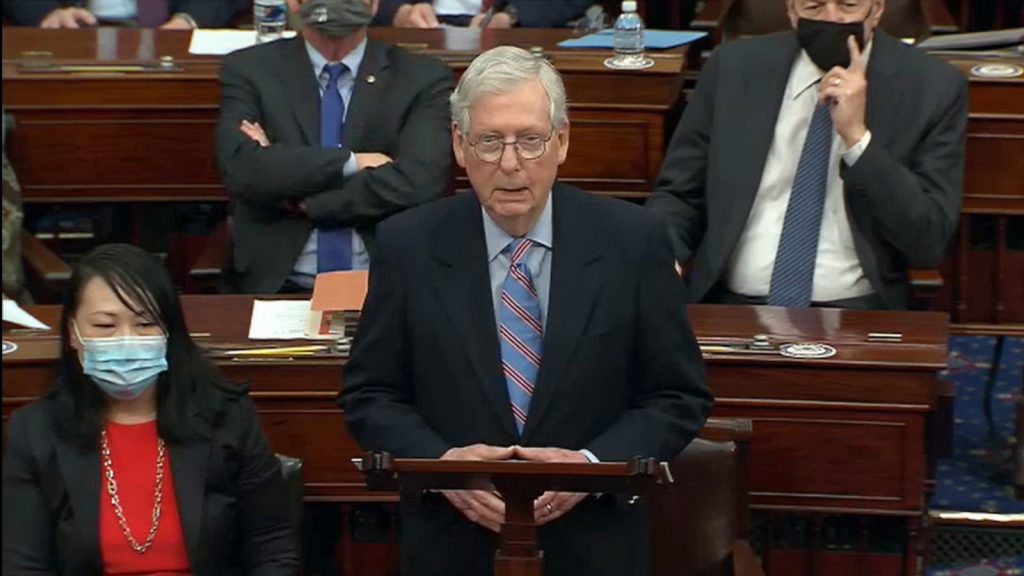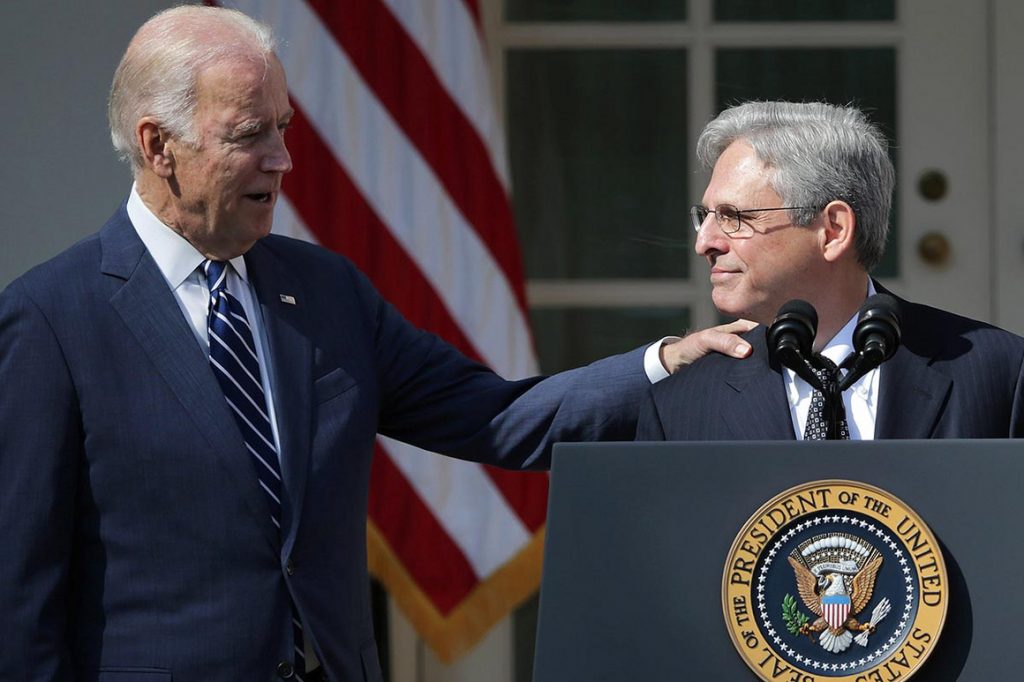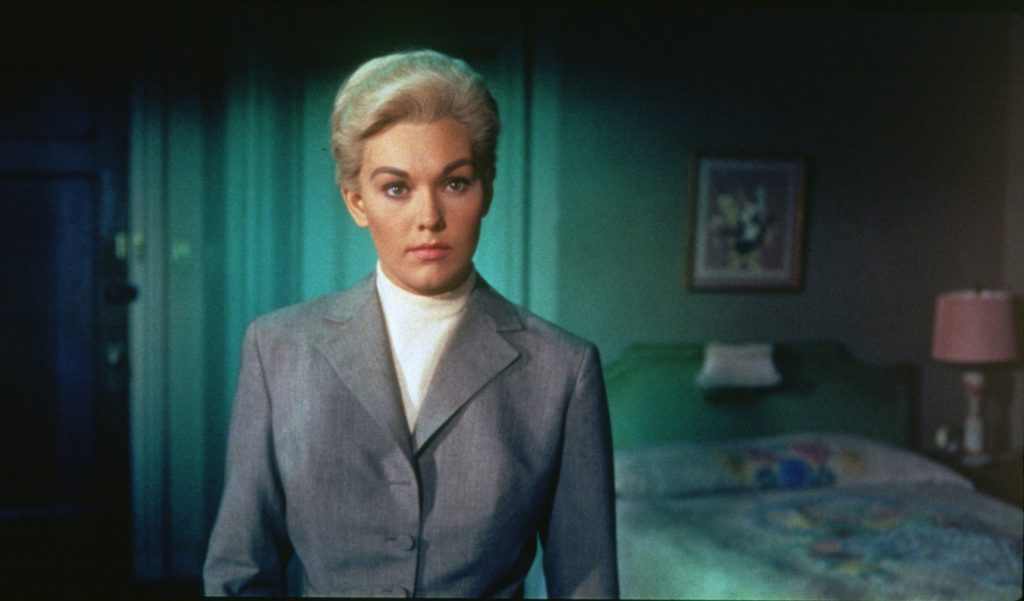The easiest vote to cast in politics is a NO vote. It absolves responsibility. If something later goes wrong, and in politics things often go a little bit wrong, the no voter is off the hook, and can fall back on the oldest line in politics: “I told you so.”
Voting no often means a politician doesn’t even need to explain the rationale for the negative. The political focus is typically on those who want to make something happen, who are willing to take a stand in favor of something.
“If a legislator votes ‘yes,’ he or she is responsible for the entire bill and all the consequences of the legislation, good or bad, intended or unintended,” long-time congressional watcher Stuart Rothenberg wrote recently.
Every congressional Republican justified a no vote on the recent COVID and economic recovery legislation on the grounds that it was too big, too much of a driver of deficit spending or not targeted enough. That’s a convenient if disingenuous argument, as Rothenberg noted because “even the GOP — once, but no longer, the party of fiscal responsibility — didn’t much care about the deficit and the debt when President Donald Trump and his merry little band of tax-cutting ideologues cut taxes during a period of solid economic growth — almost always a bad idea. You won’t hear Republicans accepting some of the blame for the deficit and debt.”

And besides who remembers a no vote? That’s why voting no is almost always the easiest thing to do.
Senate Republicans have perfected the no vote strategy, particularly with regard to President Joe Biden’s Cabinet appointees. Voting no on a Treasury secretary or the head of the Environmental Protection Agency, even when the nominees are demonstrably capable, not only serves to register disapproval of the new president, but it’s safe. Voting no appeals to the most rabid, partisans in the party. Some Senate Republicans – Josh Hawley and Ted Cruz come to mind – have voted against virtually every Biden nominee. These guys want to be president someday – fearless prediction, they won’t be – so they are performing the ritual of negativity as political necessity.
Idaho’s Jim Risch, a practiced no voter, has supported a few Biden nominees, but opposed more, nine as of this writing. Risch is the ranking member of the Foreign Relations Committee but he voted against the confirmation of Secretary of State Antony Blinken. Risch is a top Republican on the Intelligence Committee but was one of ten votes against the confirmation of Avril Haines, the first woman to ever hold the position as director of National Intelligence.
“She is a really smart person, a person with serious horsepower and a nice person,” said Carol Rollie Flynn, a three-decade CIA veteran, said of Haines. “I don’t think you’re going to see a lot of drama out of her. Just a serious professional.” A Risch spokesman said he was thumbs down on Haines because he wasn’t confident she wouldn’t politicize intelligence. Risch, it should be noted, had no problem with the appointment of former Republican congressman John Ratcliffe, arguably the most partisan person to head the intelligence community in the history of the intelligence community. Risch better hope Blinken and Haines aren’t as vindictive as he is.
Idaho’s Mike Crapo has supported a few more Biden appointees, and unlike Risch he supported Janet Yellen’s confirmation as Treasury secretary. Yellen is the first woman in that job and was the first women Federal Reserve Board chair, the job she previously held. Both Idaho senators opposed Yellen for that position, so Risch obviously doesn’t like her. Yet I find no record of any public statement justifying Risch’s opposition to the eminently qualified, PhD economist who continues to receive bipartisan praise for her work during the 2008 financial crisis.

Crapo and Risch opposed Judge Merrick Garland to be attorney general. Garland is the guy who was denied consideration as a Supreme Court nominee in 2016 despite his exemplary record as a federal judge and as the prosecutor who handled the investigation into the deadly 1995 Oklahoma City bombing. Neither senator offered a comment on why Garland isn’t suitable to run the justice department, but both supported the guys the previous administration put in place, even when the former president demanded blind partisan loyalty from each of his attorneys general.
Risch and Crapo both voted no on nominees to be secretaries of the Interior and Housing and Urban Development and head of the Small Business Administration. It’s probably just a coincidence that all three are women of color who are broadly seen as historic pathbreakers, but also demonstrably qualified. No explanation from the senators.
Notably, both senators supported former Michigan governor Jennifer Granholm, Biden’s pick to head the Department of Energy (DOE). Granholm is arguably among the most partisan of Biden’s picks – she’s been a TV talking head often critical of GOP positions – and some Republicans criticized her support for abandoning the Keystone XL pipeline. She would have been a natural to oppose, but perhaps this was a rare case of political pragmatism by the Idahoans. After all, they need a working relationship with the secretary who oversees the Idaho National Laboratory, the huge DOE complex in eastern Idaho that requires pledges of unquestioned political fealty from the state’s Republicans. Maybe all politics is local after all.
An old rule once held that barring some ethical lapse or scandal a president – any president – was entitled to pick the people for his administration. Biden will almost certainly end up getting all but one of his top people confirmed, creating the most diverse cabinet in history. The one nominee that withdrew did so because some senators found her past Twitter feed too mean. Irony had a good run.
Cornell law professor Josh Chafetz notes that the median margin of confirmation for the 18 Cabinet level appointees considered so far is 64 votes. So, Chafetz says there hasn’t been wholesale party line voting against Biden nominees who he notes are broadly liked, as well as competent. Still, Crapo and Risch have been among the most consistent Republican senators in opposing Biden’s picks – women, men, African American, Native American, Hispanic – and they offer almost no explanation as to why.
Like most everything they do in the Senate, the Idaho duo nearly always takes the predictable and most partisan path. At some point voting no when a Democrat is in the White House is just an act of reflective partisan performance. Maybe putting a rock on the no button just feels good even if you can’t be bothered to explain the reasoning.
—–0—–
Additional Reading:
A few things I came across this week that I recommend…
The John Birch Society Never Left
Rick Pearlstein and Edward H. Miller on the deep roots of rightwing conspiracy dating to the Birch Society in the 1950’s.
“Such was the complex dance that has always been at the heart of Republican politics in the conservative era. The extremist vanguard shops fantastical horror stories about liberal elites in the hopes that one might break into the mainstream, such as the “Clinton Chronicles” VHS tape distributed by Jerry Falwell in the early 1990s. The stories included the Clintons covering up the murder of Vince Foster, murdering witnesses to their drug smuggling operation, and participating in a crooked land deal at a development called ‘Whitewater.’ (The New York Times bit hard on the latter claim, setting in motion a chain of events that led to President Clinton’s impeachment over lying in a deposition about a sexual affair.)”
In The New Republic:
—–0—–
How to Put Out Democracy’s Dumpster Fire
Our democratic habits have been killed off by an internet kleptocracy that profits from disinformation, polarization, and rage. Here’s how to fix that.
“With the wholesale transfer of so much entertainment, social interaction, education, commerce, and politics from the real world to the virtual world—a process recently accelerated by the coronavirus pandemic—many Americans have come to live in a nightmarish inversion of the Tocquevillian dream, a new sort of wilderness. Many modern Americans now seek camaraderie online, in a world defined not by friendship but by anomie and alienation. Instead of participating in civic organizations that give them a sense of community as well as practical experience in tolerance and consensus-building, Americans join internet mobs, in which they are submerged in the logic of the crowd, clicking Like or Share and then moving on. Instead of entering a real-life public square, they drift anonymously into digital spaces where they rarely meet opponents; when they do, it is only to vilify them.”
Anne Applebaum and Peter Pomerantev in The Atlantic:
—–0—–
Why Kim Novak Had To Leave Hollywood to Find Herself

Readers of, well, a certain age will remember Kim Novak. The ’50s icon is perhaps best known for Vertigo – remember the green 1957 Jaguar – reveals what healed her after years of studio-system abuse, and sets the record straight about her rumored romance with Sammy Davis Jr.
“These days, Novak feels much more comfortable on the sprawling ranch in Oregon where she has lived for decades, surrounded by the art and animals that have sustained her through tough times — from losing prior homes to a fire and mudslide to, most devastatingly, losing her husband of 45 years, equine veterinarian Robert Malloy, last year. ‘I’m surviving,’ she says, tearing up and noting that she recently painted a portrait of him.”
Read in The Hollywood Reporter:
Thanks for reading…be safe out there.
